Fresh herbs and spices have always been the cornerstone of delicious and healthy cuisine. The taste and aroma of freshly plucked herbs can take any dish from ordinary to extraordinary and leave a lasting impression on the taste buds.
This is the power of freshness. Herbs and seasonings add depth and complexity to dishes, making them more vibrant and flavorful. Whether it’s basil in a classic Italian pasta dish or cilantro in a spicy Mexican salsa, herbs and spices have the ability to transform any dish into a culinary masterpiece.
We’ll explore the freshly plucked herbs and seasonings and uncover their unique properties and benefits. We’ll discuss the different types of herbs and how they can enhance the flavor of your dishes. From mint to thyme, we’ll cover a range of herbs and explore their various uses in cooking. We’ll also share tips on properly storing and preserving herbs to ensure their freshness and potency.
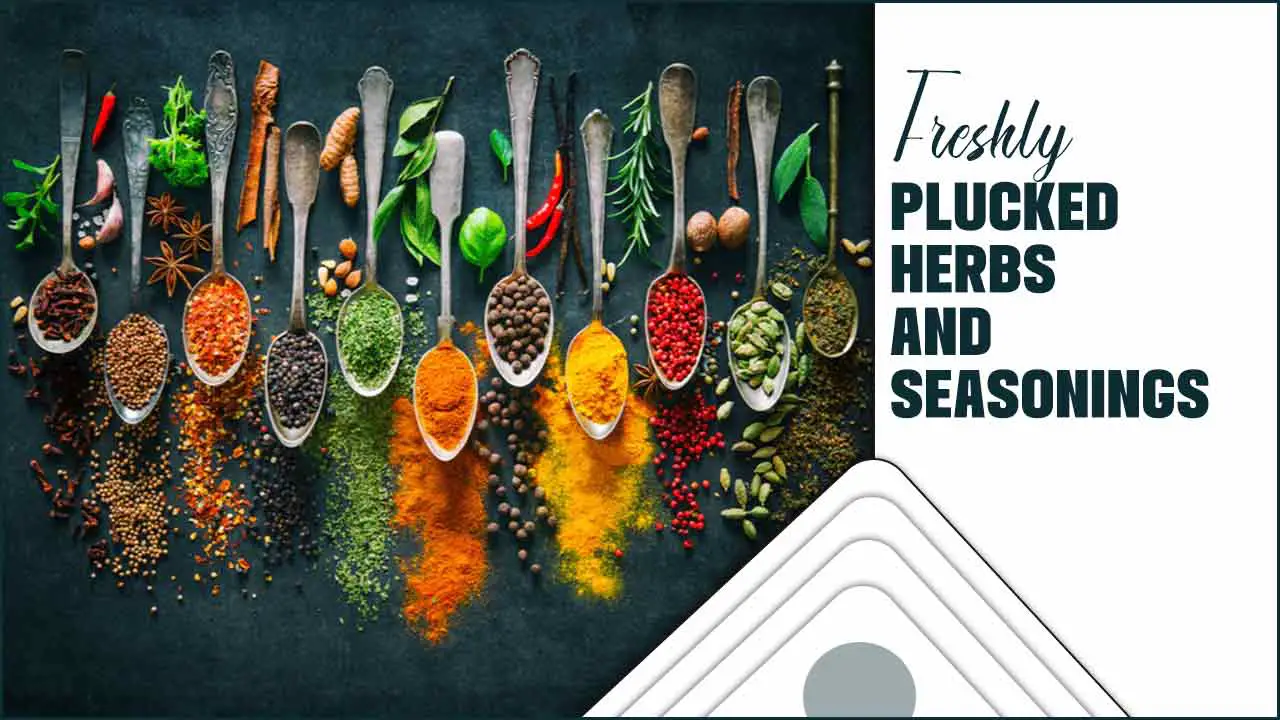
Few Popular Techniques To Have Freshly Plucked Herbs And Seasonings
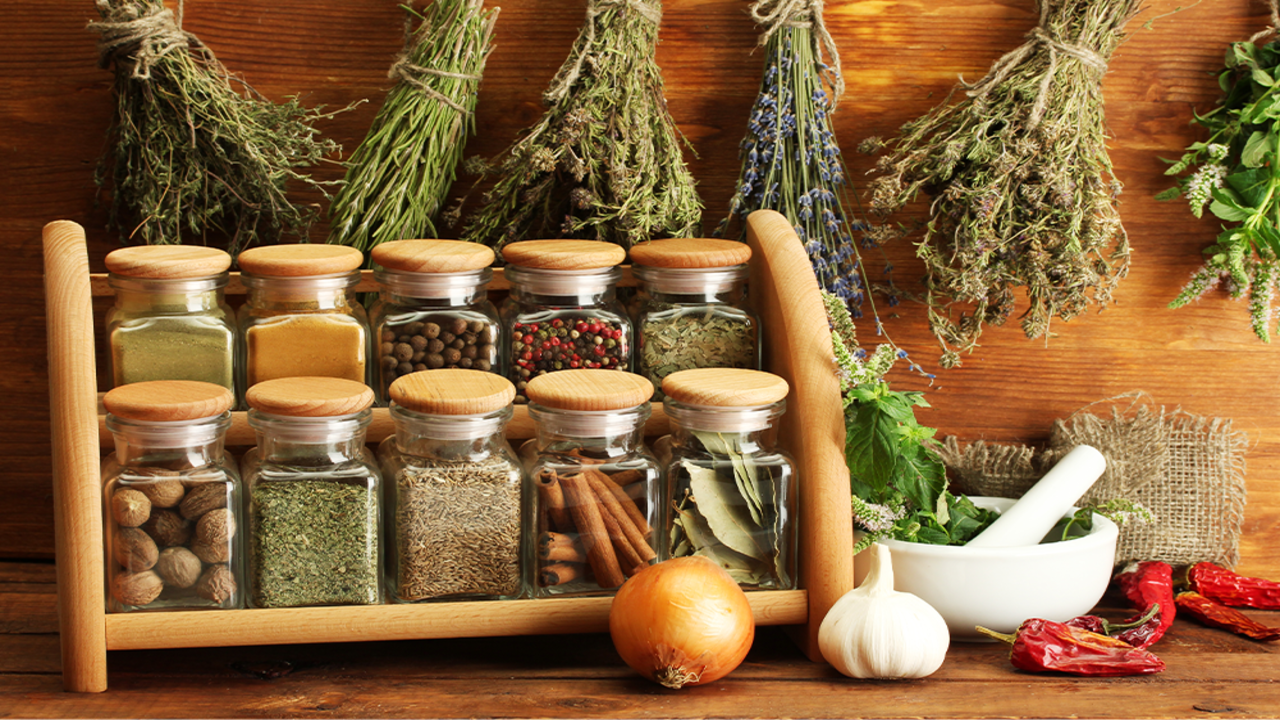
Freshly plucked herbs and seasonings can add incredible flavor to any dish. However, figuring out how to prepare them properly can be daunting. Fortunately, a few popular techniques can help you get the most out of your herbs and seasonings:
Choosing The Right Herbs And Seasonings For Your Dish
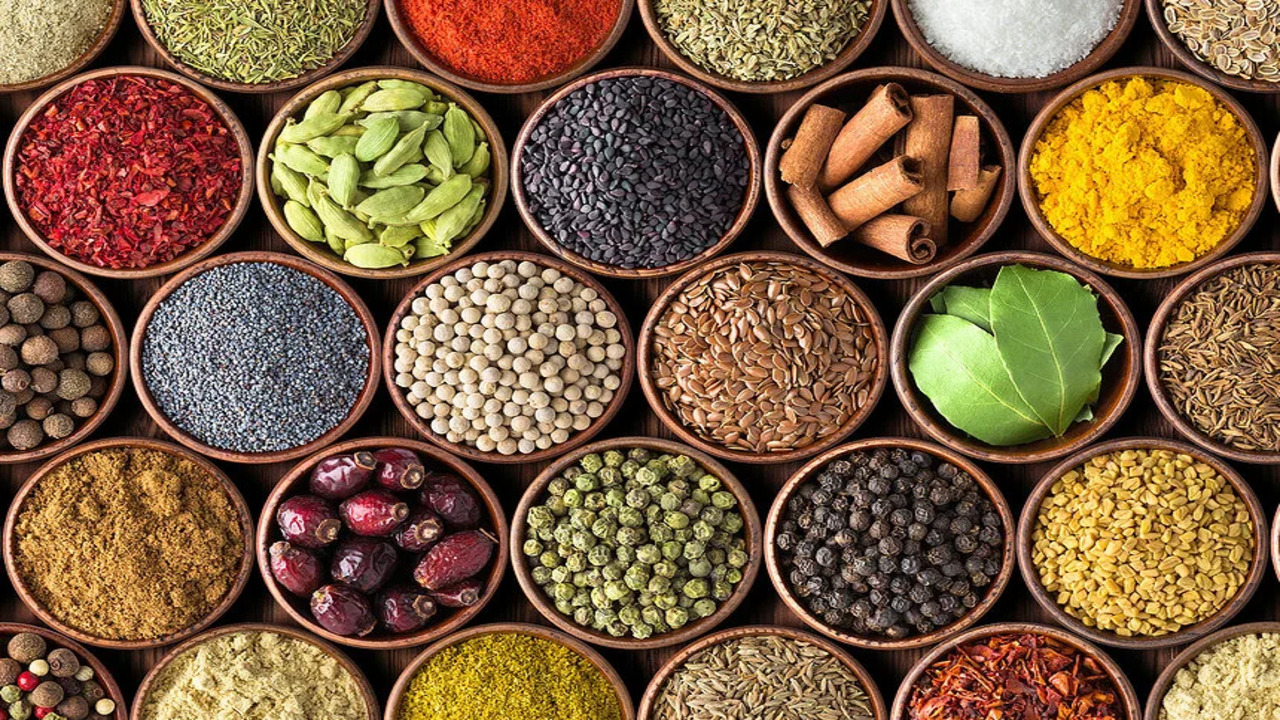
Cooking is an art that involves a perfect blend of various flavors and textures to create a mouth-watering dish. And when it comes to adding flavors, herbs, and seasonings play a vital role in enhancing the taste and aroma of the food.
Choosing the right herbs and seasonings for your dish can make a huge difference in the outcome of your cooking. Each herb and spice has a unique flavor profile and can bring out the best in your dish when used in the right proportion. For example, if you’re cooking a pasta dish, a pinch of oregano can add a nice earthy flavor, a sprinkle of basil can give a sweet and fresh aroma, and a dash of red pepper flakes can bring some heat.
Similarly, if you’re making a curry, a blend of cumin, coriander, turmeric, and garam masala can create a perfect balance of flavors that will leave your taste buds craving more.
How To Harvest And Store Fresh Herbs And Seasonings
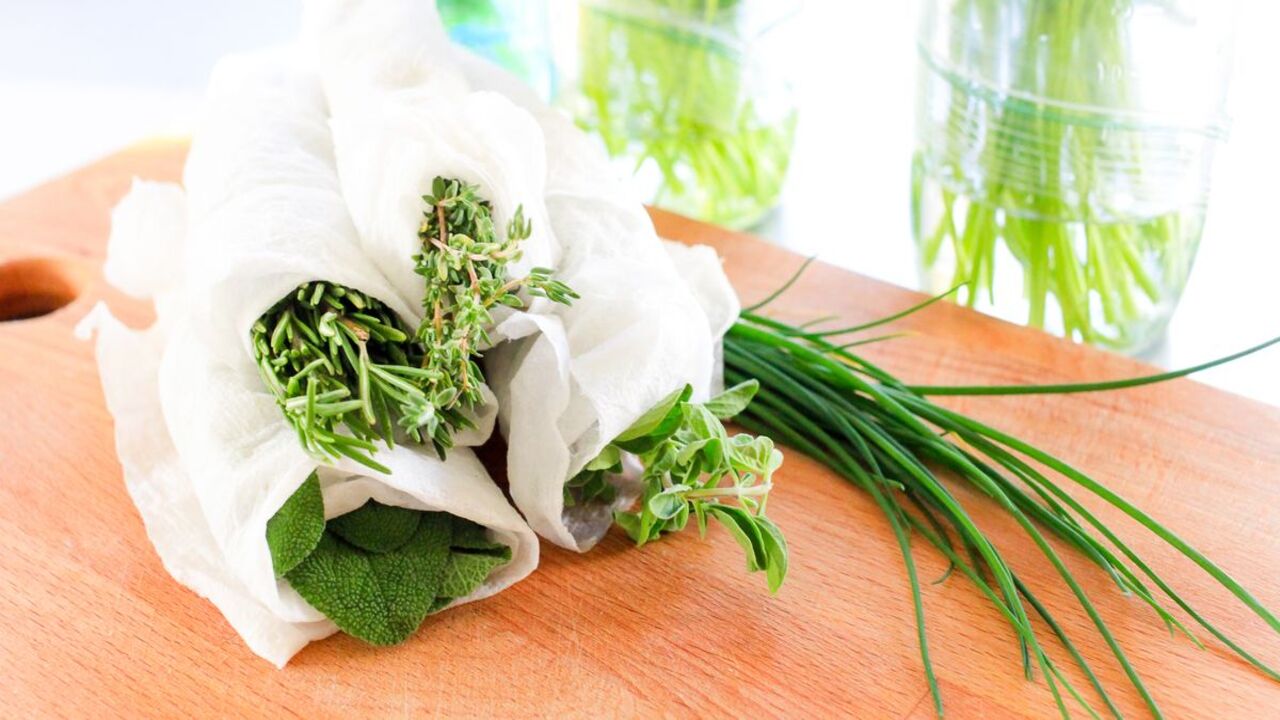
Harvesting and storing fresh herbs and seasonings is essential for anyone who loves to cook with fresh ingredients. The first step in harvesting herbs is to choose the right time of day.
Early in the morning is the best time to harvest, as this is when the oils in the herbs are most concentrated. Use sharp scissors to cut the herbs just above the node where a new stem will emerge. Be sure only to take a few stems from each plant to ensure continued growth. Once you have harvested your herbs, it’s time to prepare them for storage. One of the best ways to store fresh herbs is to dry them. You can do this by tying the stems and hanging them upside down in a warm, dry place.
Alternatively, you can spread the herbs on a clean, dry surface and allow them to air dry. Once dehydrated, you can store the herbs in an airtight or resealable bag.
Infusing Techniques For Fresh Herbs And Seasonings
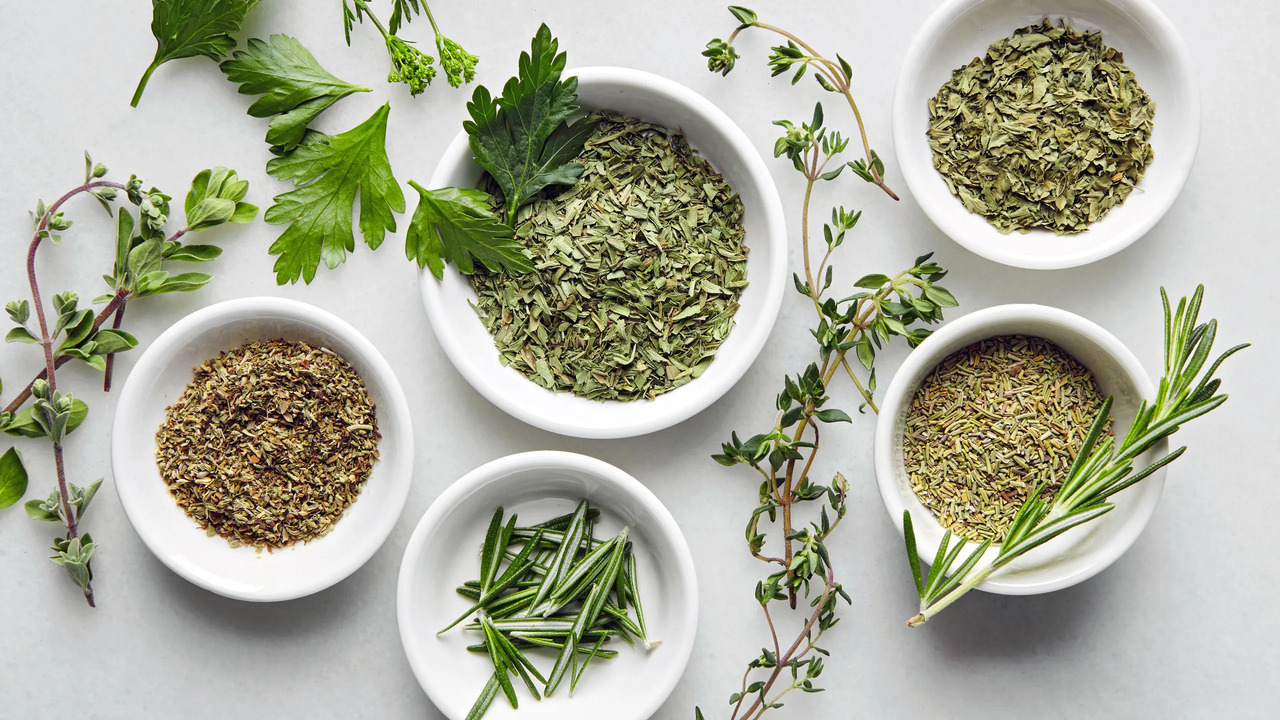
Infusing techniques for fresh herbs and seasonings can elevate the flavors of your dishes and add a delightful aromatic touch. Also, infusing involves extracting the essence and fragrance of herbs and spices by steeping them in a liquid or oil. By experimenting with different herbs and spices and exploring various infusing techniques, you can unlock a world of flavors and enhance your culinary creations with the natural essence of fresh herbs and seasonings.
- One popular method is to infuse herbs in hot water to create herbal teas or flavor broths. This allows the flavors and beneficial compounds of the herbs to disperse into the liquid, resulting in a soothing and flavorful beverage or base for soups and sauces.
- Another common technique is infusing herbs and spices in oils, such as olive or grapeseed. This process imparts the essence of the herbs into the oil, creating infused oils that can be used for cooking, dressing, or drizzling over dishes for added flavor. Infused oils can also make great homemade gifts.
- Additionally, you can infuse herbs and seasonings in vinegar, creating infused vinegar that brings a unique taste to salads, marinades, or cocktails.
Creating Herb And Seasoning Blends
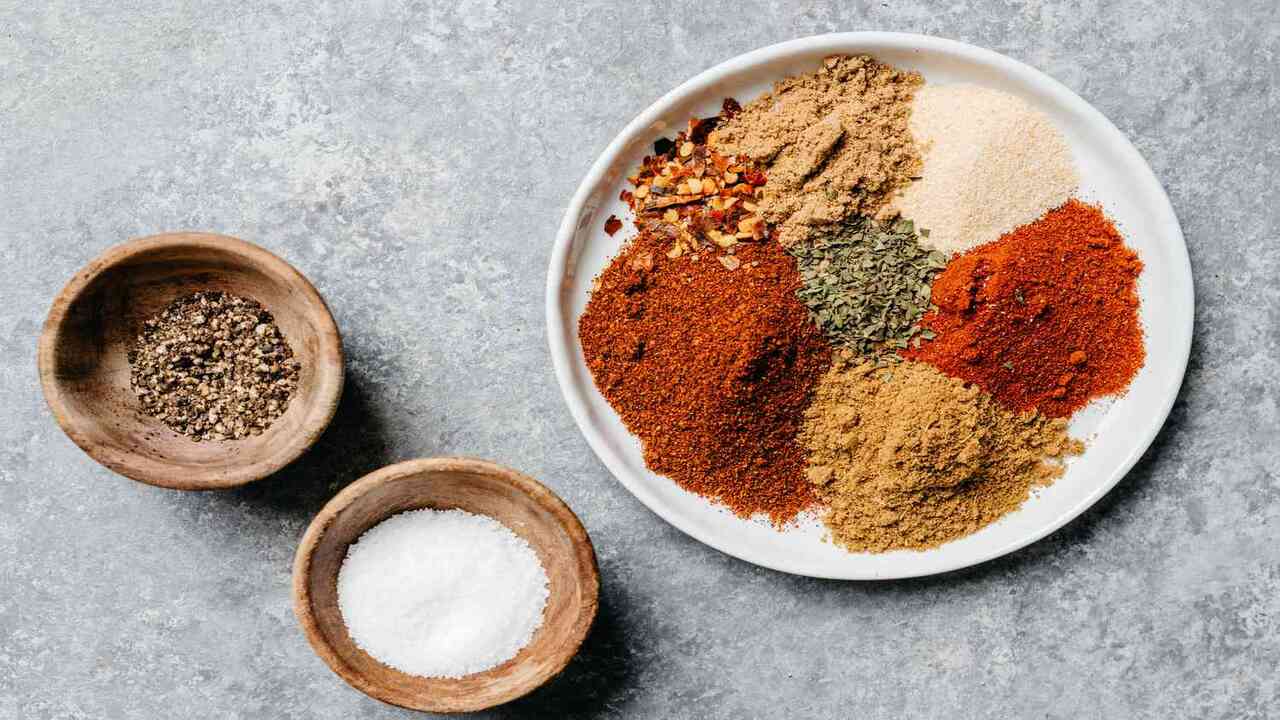
Creating herb and seasoning blends is a great way to add flavor to your meals. Herbs and spices are not only delicious but also have numerous health benefits. A blend of herbs and spices can take an ordinary dish to the next level.
- Start by selecting your favorite herbs and spices and experiment with different combinations until you find the perfect blend. You can use fresh or dried herbs depending on the availability and your preference.
- Dried herbs have a stronger flavor and are easier to store. Once you have selected your herbs and spices, mix them together in a bowl and store them in an airtight container.
- You can use these blends to season meats, vegetables, soups, and sauces. Some popular herb and spice blends include Italian seasoning, curry powder, and Cajun seasoning.
- Making your own herb and seasoning blends is a great way to customize the flavor of your meals and avoid the added preservatives and chemicals found in store-bought blends.
Freezing Herbs And Seasonings For Long-Term Storage
Freezing herbs and seasonings is an excellent way to extend their shelf life and preserve flavor. Fresh herbs and seasonings can be expensive and hard to find, especially if you live in an area with a short growing season. By freezing them, you can keep them on hand for use in your favorite recipes all year long. Freezing herbs and seasonings is also a great way to reduce food waste. Instead of throwing away excess herbs and seasonings, you can freeze them later.
To freeze herbs and seasonings, start by washing and drying them thoroughly. Chop them into small pieces and place them in freezer-safe bags or containers. Label the bags with the herb’s name and the date you froze them. Place the bags in the freezer and use them as needed. Frozen herbs and seasonings can be added directly to soups, stews, sauces, and marinades. They can also be used to make flavored butter and oils.
Using Fresh Herbs And Seasonings In Cocktails And Beverages
Using fresh herbs and seasonings in cocktails and beverages is a trend that has taken the bartending world by storm. These days, mixologists are experimenting with various herbs and spices to create innovative and flavorful drinks.
Using fresh herbs adds a unique taste to cocktails and provides a healthy element to the beverage. Herbs like mint, basil, and rosemary add a refreshing taste and provide digestive and anti-inflammatory benefits. Similarly, seasonings like cinnamon and cardamom can be added to drinks for a warming and comforting feel. Using fresh herbs and seasonings also allows bartenders to create drinks tailored to the season.
For instance, drinks can be made in the summer with fresh mint and citrus; spices like cloves and nutmeg can create a cozy feel in the fall.
Conclusion
Knowing freshly plucked herbs and seasonings is a crucial task that requires attention to detail and precision. The power of freshness cannot be overstated regarding herbs and seasonings. Freshly plucked herbs and spices can elevate a dish from ordinary to extraordinary and add depth and complexity to even the most straightforward recipes.
Whether you grow your own herbs or purchase them from a local farmer’s market or grocery store, using fresh ingredients will make a noticeable difference in the taste and quality of your cooking. By incorporating the tips and techniques discussed in this guide, you can harness the power of freshness and take your culinary skills to the next level.
FAQ
1.What Are Freshly Plucked Herbs & Seasonings?
Ans: Freshly plucked seasonings & herbs are natural and fresh herbs and spices directly picked from their respective plants without any preservatives or additives.
2.What Is The Best Way To Store Freshly Plucked Seasonings & Herbs?
Ans: The best way to store freshly plucked seasonings & herbs is by keeping them in a container, wrapped with a damp paper towel, and stored in the refrigerator. This helps to keep the herbs fresh for a longer time.
3.How Long Do Freshly Plucked Seasonings & Herbs Last?
Ans: Freshly plucked seasonings & herbs can last up to a week if stored properly in the refrigerator. However, the flavor and aroma may diminish after a few days.
4.What Are The Benefits Of Using Freshly Plucked Seasonings & Herbs?
Ans: Freshly plucked seasonings & herbs contain essential oils, antioxidants, and nutrients that provide various health benefits, such as improving digestion, reducing inflammation, and boosting the immune system.
5.Can Freshly Plucked Seasonings & Herbs Be Used In Cooking?
Ans: Yes, freshly plucked seasonings & herbs are perfect for cooking, adding a fresh and vibrant flavor to any dish.

I’m a writer and blogger who loves to talk about entertainment, culture, and relationships. I love to share my thoughts and insights on these topics, and I’m always looking for new ways to engage with my readers. I’m also a big fan of learning new things, so I’m always exploring new areas of interest.
